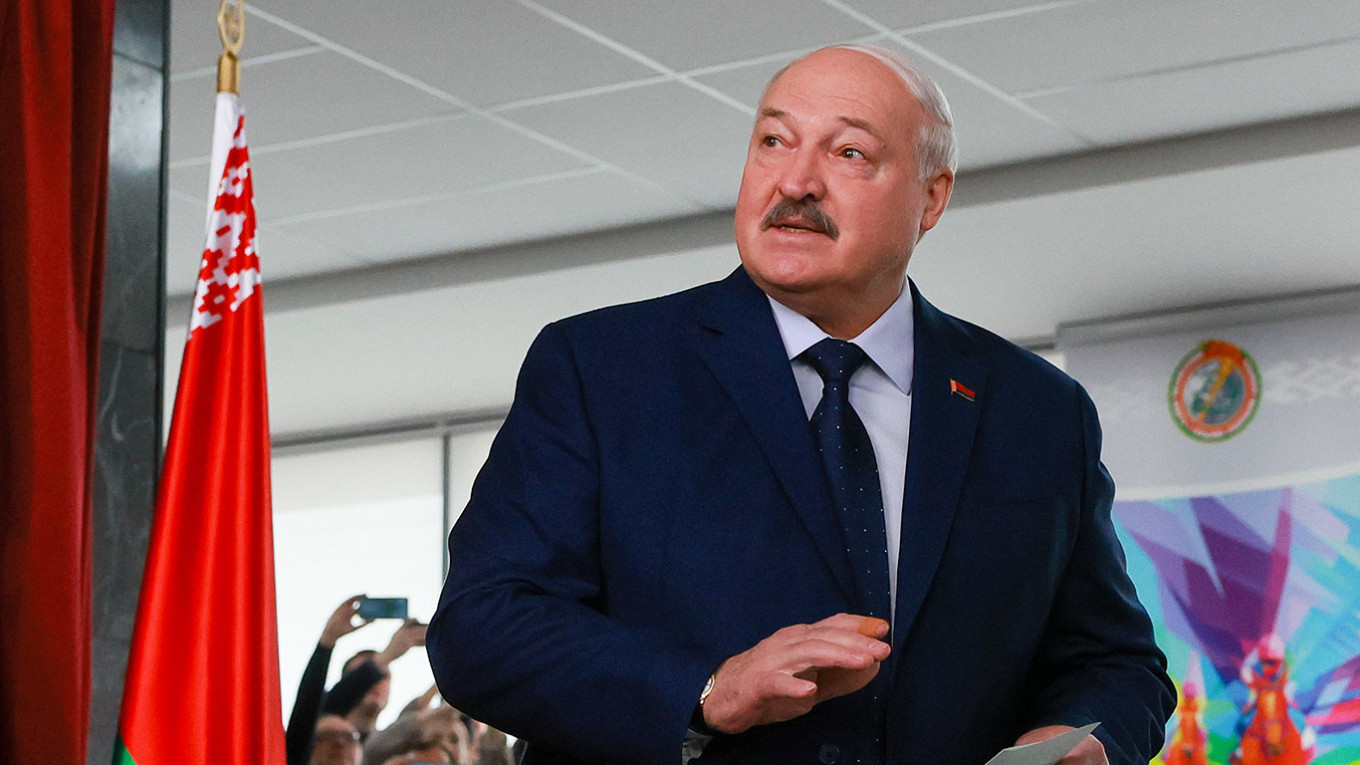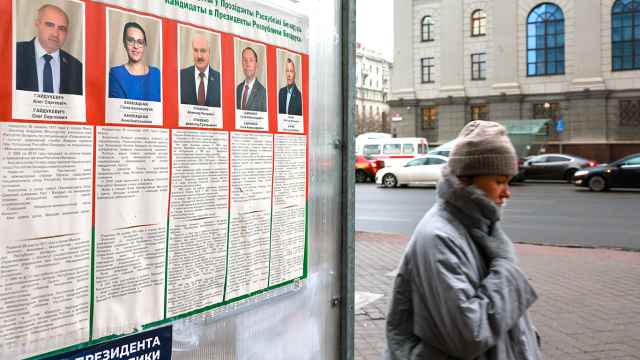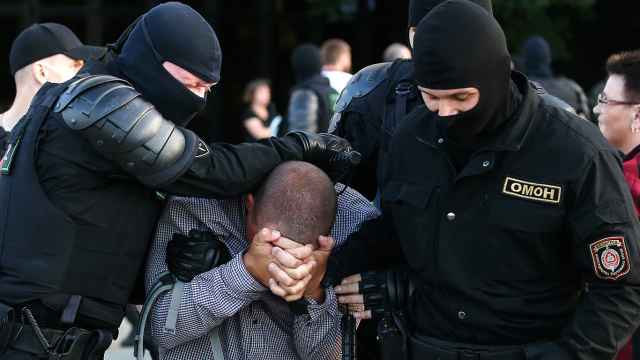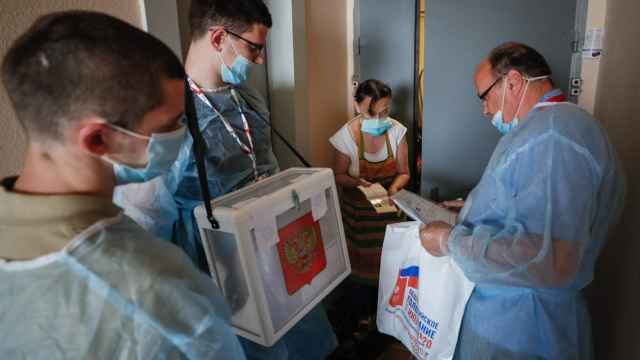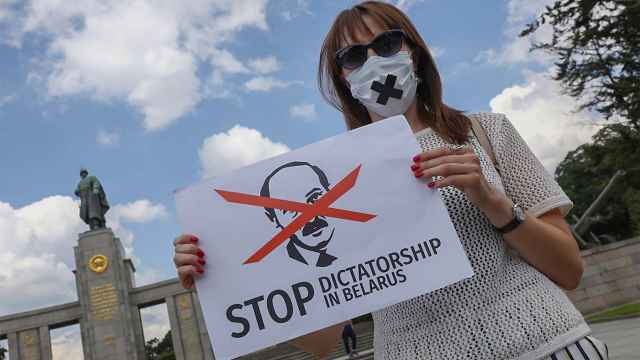Belarusian President Alexander Lukashenko won a seventh consecutive term in office Sunday in an election denounced by the European Union and the country's exiled opposition.
With all his opponents in prison or living in exile abroad, the 70-year-old ruler appeared to have won 87.6% of the vote, according to an official exit poll. That is more than the 81.04% Lukashenko was purported to have wone in the country's last presidential election.
Exiled opposition leader Svetlana Tikhanovskaya called the election a "farce," while the EU described it as a "sham." Lukashenko, however, said he did not care whether or not the bloc recognized the results.
The Belarusian leader also said that he had "no regrets" about allowing Russian President Vladimir Putin, who he described as his "older brother," to use Belarus as a staging ground for the full-scale invasion of Ukraine.
Sunday's vote took place five years into a wave of heightened repression in Belarus, during which rights groups say the country has jailed more than 1,200 people as political prisoners.
Belarus's 2020 election ended in nationwide protests, with demonstrators accusing Lukashenko of rigging the vote.
Tens of thousands of Belarusians fled their country in the aftermath of the 2020 protests as the country's security services embarked on a repression spree, mainly to neighboring Poland and Lithuania.
Lukashenko said Sunday that his opponents were behind bars or abroad out of choice. "Some chose prison, some exile," he said.
"If it is prison then it's those who opened their mouths too widely," he added.
Repenting and asking for pardon were preconditions for any prisoner releases, Lukashenko said during a news conference that lasted four hours and 25 minutes.
In Warsaw, home to many exiled Belarusians, opposition leader Tikhanovskaya described Lukashenko as a "criminal who has seized power."
Many people wore masks and some refused to speak to AFP, explaining they had relatives in Belarus and criticism could cause trouble for them.
"It's just a country with the illusion of choice," said Aliaxandra, a 22-year-old student, adding that some of her fellow citizens had been living in fear "for decades."
Tikhanovskaya told AFP in an interview earlier this month she wanted dissidents to be ready for an opportunity for change in Belarus. But she admitted that it was "not the moment."
In a statement on Sunday, the foreign ministers of the eight Nordic and Baltic nations — Estonia, Latvia, Lithuania, Denmark, Finland, Iceland, Norway and Sweden — celebrated "the tireless efforts of the Belarusian democratic forces led by Svetlana Tikhanovskaya."
Tikhanovskaya's allies in Belarus are held in prison — often incommunicado and in isolation.
Lukashenko accused imprisoned protest leader Maria Kolesnikova — who tore up her passport during forced deportation by security services in 2020 — of "breaking" prison rules.
He said that he personally gave the order for Kolesnikova to be "shown to the people" last November — when photos of her were released in the first sign of her still being alive for over a year.
Fears for the health of Kolesnikova, who was hospitalized while in prison, have grown in recent months. However, Lukashenko insisted that she is "fine."
Most people in Belarus have only distant memories of life before Lukashenko, who was 39 when he won the first national election after the country gained independence from the Soviet Union.
Public criticism of Lukashenko is banned. Most people AFP spoke to in Minsk and other towns voiced support for him.
In Minsk, 74-year-old pensioner Nadezhda Guzhalovskaya said she voted for Lukashenko due to a lack of other options.
"Maybe everything here is not perfect, we don't have democracy," Guzhalovskaya said.
But Irina Lebedeva said that "thanks to our president there is peace in this country," repeating the government's position that the 2020 street protest leaders had created chaos.
The United Nations estimates that some 300,000 Belarusians have left the country since 2020 out of a population of nine million. They were unable to cast ballots, with Belarus having scrapped voting abroad.
In the run-up to the election, the Lukashenko administration pardoned around 200 political prisoners. But former inmates told AFP those released were under the close watch of security services and unable to lead a normal life.
Sometimes called "Europe's last dictator" — a nickname he embraces — Lukashenko has retained much of the Soviet Union's traditions and infrastructure during his time in power.
Unlike in Russia, the KGB security agency has retained its Soviet-era name and Belarus still uses the death penalty.
If Lukashenko finishes his new term, which ends in 2030, he will have been in power for 36 years.
A Message from The Moscow Times:
Dear readers,
We are facing unprecedented challenges. Russia's Prosecutor General's Office has designated The Moscow Times as an "undesirable" organization, criminalizing our work and putting our staff at risk of prosecution. This follows our earlier unjust labeling as a "foreign agent."
These actions are direct attempts to silence independent journalism in Russia. The authorities claim our work "discredits the decisions of the Russian leadership." We see things differently: we strive to provide accurate, unbiased reporting on Russia.
We, the journalists of The Moscow Times, refuse to be silenced. But to continue our work, we need your help.
Your support, no matter how small, makes a world of difference. If you can, please support us monthly starting from just $2. It's quick to set up, and every contribution makes a significant impact.
By supporting The Moscow Times, you're defending open, independent journalism in the face of repression. Thank you for standing with us.
Remind me later.


